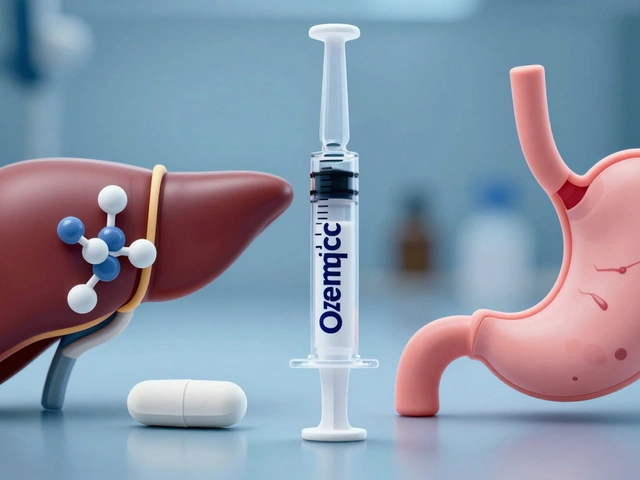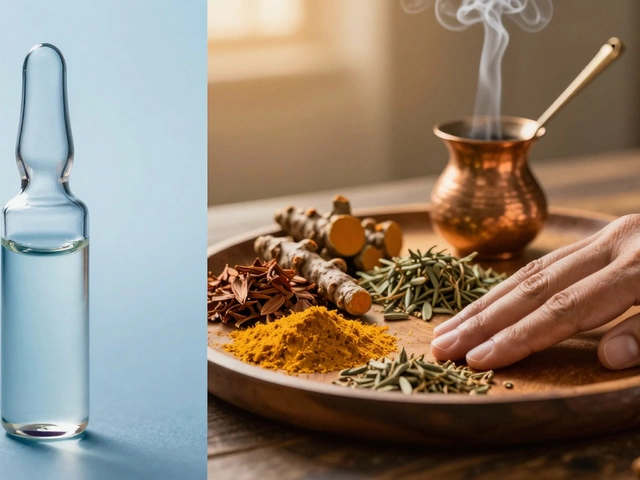New Mothers – What You Need to Know About Medicines and Health Risks
Welcome to the stage of motherhood! While you’re busy caring for a tiny human, you also need to look after yourself. One big challenge is figuring out which medicines are safe and which could cause trouble. In India, many drugs are sold over the counter, and not all of them are pregnancy‑ or lactation‑friendly. This guide gives you practical steps to spot risky pills, pick gentle alternatives, and avoid hidden toxins.
Checking Medicine Safety in India
The first thing to do before you swallow any tablet is to check its label. Look for the words “safe for lactation” or “compatible with breastfeeding.” If the label is vague, call your pharmacist and ask specifically about milk transfer. Many Indian brands don’t print this info, so a quick phone call can save you a lot of worry.
Next, ask for the drug’s active ingredient and search it on the PoisonWB database. This site lists common side effects and toxic levels for medicines sold in India. A quick check tells you if the drug has any known harmful effects for newborns.
Don’t assume that “herbal” means harmless. Some Ayurvedic formulas contain heavy metals or strong herbs that can affect milk supply. For example, a popular herbal supplement for energy might include licorice root, which can lower cortisol and affect milk composition. Always verify the ingredient list and ask a qualified Ayurvedic practitioner about safety for a nursing mother.
If you need pain relief after a C‑section or a sore back from carrying a baby, stick to medicines with proven safety records. Paracetamol (acetaminophen) is widely accepted for short‑term use, while ibuprofen can be taken after the first few weeks if your doctor approves. Avoid codeine, tramadol, and strong opioids unless the doctor says it’s absolutely necessary.
Gentle Remedies for New Moms
Post‑partum recovery doesn’t have to rely on strong chemicals. Simple, low‑risk options can ease common issues like back pain, anxiety, or low milk supply.
Ayurvedic massage (Abhyanga) is a great way to relax sore muscles. Use a light oil like sesame or almond, which are safe for nursing moms, and massage your shoulders and lower back for 10‑15 minutes a day. The technique boosts circulation without adding chemicals to your system.
Herbal teas such as fenugreek or fennel can support milk production. A cup in the morning is enough; don’t overdo it, because excess can cause gastrointestinal upset for both you and the baby.
For occasional constipation, a warm glass of lemon water with a pinch of black salt works well and avoids the need for laxatives that could interfere with nutrient absorption.
Remember to stay hydrated, eat balanced meals, and get enough sleep when possible. A well‑fueled body handles medicines better and recovers faster.
In summary, always read labels, use the PoisonWB database, and talk to your pharmacist or qualified practitioner before starting any new drug. Pair safe medicines with gentle Ayurvedic practices, and you’ll protect both your health and your baby’s wellbeing.

The Ayurvedic First 40 Days: A New Mom's Essential Guide
Ayurveda offers a unique approach to postpartum care, focusing on the first 40 days after childbirth. This period is crucial for mothers to heal, rejuvenate, and bond with their newborns. The age-old practice involves specific diet plans, herbal remedies, and lifestyle changes to ensure the well-being of both mother and baby. Understanding these principles can help new moms navigate the journey of recovery and adaptation to motherhood.




